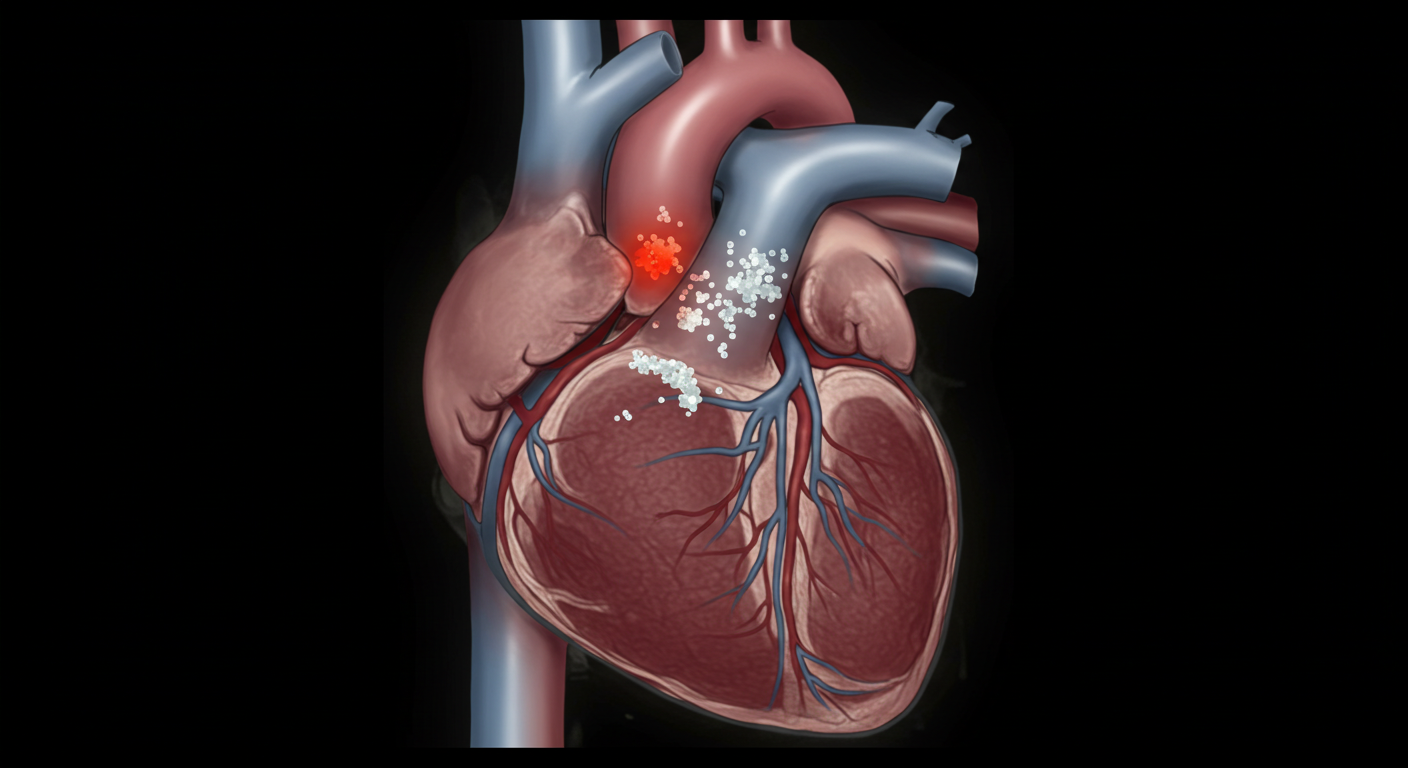Dr. Kumar’s Take:
Vitamin K2 doesn’t get much attention, but it plays a crucial role in protecting your heart and blood vessels. It activates proteins that stop calcium from building up in places it doesn’t belong—like your arteries and heart valves. This review highlights how low vitamin K2 levels are linked to stiffer arteries, more calcified heart valves, and a higher risk of heart failure and death. If you’re over 40, have kidney disease, or take a statin, you may especially benefit from paying attention to your vitamin K2 intake.
Key Takeaways:
✔ Vitamin K2 activates matrix Gla protein (MGP), which helps prevent calcium buildup in arteries and heart valves.
✔ High levels of inactive MGP (a sign of low vitamin K2) are linked to arterial stiffness, vascular calcification, and heart disease.
✔ Vitamin K2 supplementation is safe, affordable, and may improve cardiovascular outcomes.
Actionable tip:
Add more vitamin K2-rich foods like natto, hard cheeses, and egg yolks to your diet—or talk to your doctor about supplementing with MK-7, especially if you’re over 40 or have cardiovascular risk factors.
Brief Summary:
This comprehensive review explored the role of vitamin K2 in heart health. Researchers explained how vitamin K2 helps activate matrix Gla protein (MGP), a key molecule that prevents calcium from depositing in arteries and heart valves. Low vitamin K2 levels, measured by high levels of inactive MGP, were consistently linked to arterial stiffness, vascular calcification, and increased risk of heart failure and death. Existing evidence strongly supports vitamin K2’s protective role in cardiovascular health.
Study Design:
This was a narrative review, not a single clinical trial. The authors summarized decades of research including animal studies, human observational data, and interventional trials. They focused on vitamin K2’s effects on MGP activation and how this relates to outcomes like arterial stiffness, vascular and valvular calcification, heart failure, and mortality.
Results:
- Vitamin K2 deficiency (measured by inactive MGP) is linked to arterial stiffness, heart valve calcification, and higher cardiovascular mortality.
- Patients on warfarin, those with kidney disease, and older adults are more likely to be deficient.
- Supplementation with MK-7 (a form of K2) has been shown to reduce arterial stiffness and improve MGP activation.
- Multiple large clinical trials are currently underway to evaluate K2’s effects on long-term cardiovascular outcomes.
How Vitamin K2 Works:
Vitamin K2 activates matrix Gla protein (MGP), which keeps calcium out of your arteries and heart valves. Without enough vitamin K2, MGP stays inactive, and calcium can build up where it shouldn’t. This leads to stiff arteries and can contribute to heart disease. K2 also supports bone health by helping calcium go where it belongs—into your bones.
Related Studies and Research
Reviews the connection between vitamin K2 and reduced arterial calcification, including clinical data. – Comprehensive narrative review of K2’s role in preventing and reversing calcification.
Discusses how vitamins D and K work together to support both bone density and cardiovascular protection. – Explores synergistic pathways between D and K that benefit vasculature.
Highlights findings from the Rotterdam Study on vitamin K2 and its potential to reduce cardiovascular mortality. – Presents real-world cohort data on K2 and heart disease outcomes.
Examines how warfarin use is linked with increased arterial calcification risk due to vitamin K inhibition. – Details warfarin’s impact on calcium deposition in arteries.
Assesses MK-7’s influence on anticoagulation therapy stability and potential dose-response effects. – Evaluates how MK-7 dosing affects INR and bleeding risk.
Frequently Asked Questions
What’s the difference between vitamin K1 and K2?
Vitamin K1 is found in leafy greens and helps with blood clotting. Vitamin K2 (especially MK-7) is found in fermented foods and plays a bigger role in heart and bone health.
How do I know if I’m deficient in K2?
There’s no routine test yet, but high levels of inactive MGP in the blood are a strong sign. People on warfarin, statins, or with kidney disease are more likely to be deficient.
What’s the best dose of vitamin K2?
Most studies use 180–375 mcg/day of MK-7. It’s safe and well-tolerated, but if you are on warfarin, Vitamin K2 can reverse your anticoagualation.
Can I take vitamin K2 with blood thinners?
Vitamin K2 can interfere with warfarin. Always talk to your doctor if you’re on blood thinners before supplementing.
Conclusion
Vitamin K2 may be one of the most underrated nutrients for heart health. It helps prevent calcium buildup in arteries and heart valves, potentially lowering your risk of heart disease, stroke, and death. While more research is ongoing, the current evidence is strong enough to consider adding K2-rich foods or supplements to your routine—especially if you’re older, have kidney disease, or take medications that affect vitamin K metabolism.


